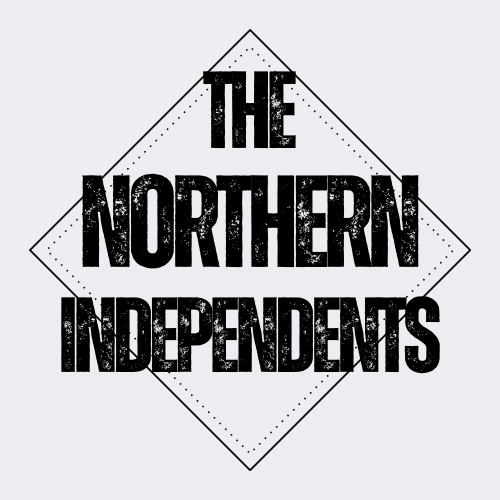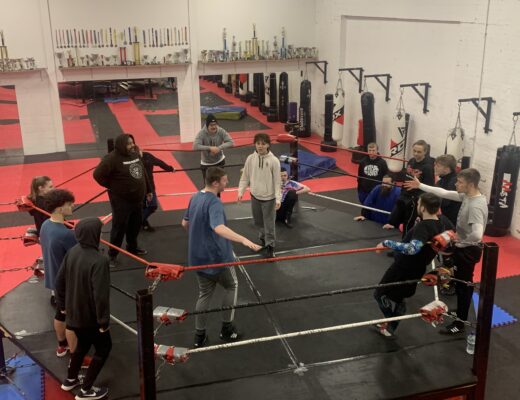The UK independent wrestling scene has seen a resurgence in popularity as of late.
New promotions and independent wrestlers are becoming prominent components of the territory. This is reminiscent of the boom period the UK saw from 2012-2020.
The 2010’s Boom Period
This era of UK independent wrestling is often touted as the revival of the British scene. Numerous factors helped grow the popularity of the sport with the emergence of new promotions being the most impactful.
PROGRESS Wrestling was founded in 2012 by comedian Jim Smallman and quickly gained a large swell of support from fans nationwide. The promotion would start to put on shows in The Garage in London which they would sell out consistently from the first event.
Many of the top UK wrestlers at the time would be featured regularly on PROGRESS shows such as Will Ospreay, Pete Dunne and Tyler Bate.
In 2018, PROGRESS would produce the biggest English wrestling show in 30 years at Wembley Arena with 4,750 fans in attendance.
Due to a renewed interest of professional wrestling, ITV revived World Of Sport Wrestling, a weekly wrestling television show that had previously aired from 1955 to 1988. ITV aired a New Year’s Eve special episode of WOS in 2016 before introducing a weekly ten-episode series in 2018.
WOS would feature prominent stars of the British wrestling scene alongside internationally recognised wrestlers as apart of a partnership with American promotion Impact Wrestling (now known as TNA Wrestling).
Another promotion that was a major part of the boom period was Insane Championship Wrestling (ICW) based in Scotland. ICW was responsible for putting a spotlight on the top Scottish talent, many of whom would go on to become WWE superstars.
ICW Director Of Communications Thomas Kearins said: “A massive factor in the boom period was the Vice documentary and the two Insane Fight Club documentaries on BBC. This took wrestlers like Grado and Drew McIntyre into everyone’s homes and gave them mainstream exposure and that was the catalyst for the boom.”
At ICW Fear & Loathing IX in 2016, over 6,000 fans would fill the SSE Hydro in Glasgow.
The Fall Of British Wrestling
Three main factors contributed to the end of one of British wrestling’s most successful periods.
2018 saw WWE’s UK based division sign exclusive contracts with many of the top British talent forcing many promotions to reshuffle their rosters with lesser known names.
The Covid-19 Pandemic forced independent wrestling shows to immediately cease production due to the nature of the close-combat sport. This not only halted any momentum the scene had but financially impacted promotions and independent wrestlers heavily.
When it was safe to do so, some promotions began to put on shows again but with necessary safety restrictions. Many promotions were unable to financially survive the pandemic and were unable to reopen.
June 2020 saw the beginning of the #SpeakingOut movement which saw many of the UK’s top independent wrestlers and those in power at top promotions be accused of sexual misconduct.
Independent Wrestler Ian Skinner said: “After Speaking Out, a lot of people in prominent positions were outed for what they were doing which made a lot of casual fans lose trust from what they were seeing and detach themselves from it. You did see a major drop off in attendance and a lot of people needed to find trust again in the entertainment they were watching.”
As a result of the Speaking Out movement, promotions would cut ties with wrestlers and coaches who had allegations against them.
A New Boom Period?
The current day British wrestling scene has seen a revival in popularity with new talent and promotions being at the forefront of the resurgence.
Promotions nationwide are seeing substantial growth in attendance. NORTH Wrestling, True Grit Wrestling and RevPro have each put on their highest ever attended shows in the past year.
True Grit Wrestling’s Owner/Promoter said: “We had our highest attendance in January in Leeds, it was our first sell out. In York we almost sold out again. We have a huge following now, a very loyal fanbase which is growing every show.”
Promotions that were thriving before the pandemic induced break have also returned to prominence in the British landscape. PROGRESS and ICW are back to drawing large crowds for their shows with a whole new roster compared to their pre-pandemic states.
ICW Head of Creative Scott Reid said: “We’re on an uprise again, there was definitely a downturn of getting people into venues because of the pandemic and a lack of talent. We have really focused on establishing new talent and its helped create a fresh buzz.”
Despite the country seeing great success, there is still work to be done for the British scene to reach the same heights as the 2010s. However, all signs point to another boom period occurring in the near future.


